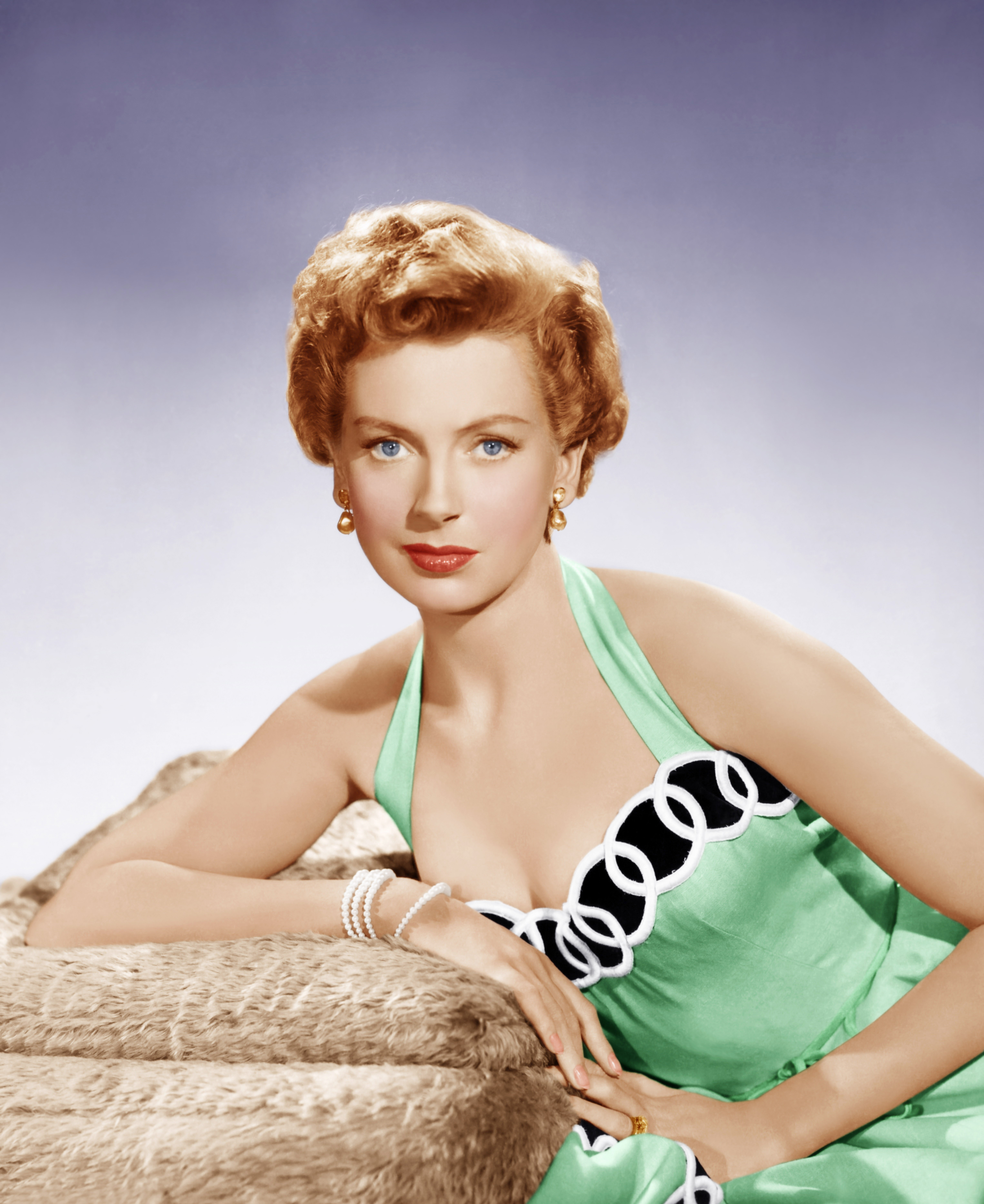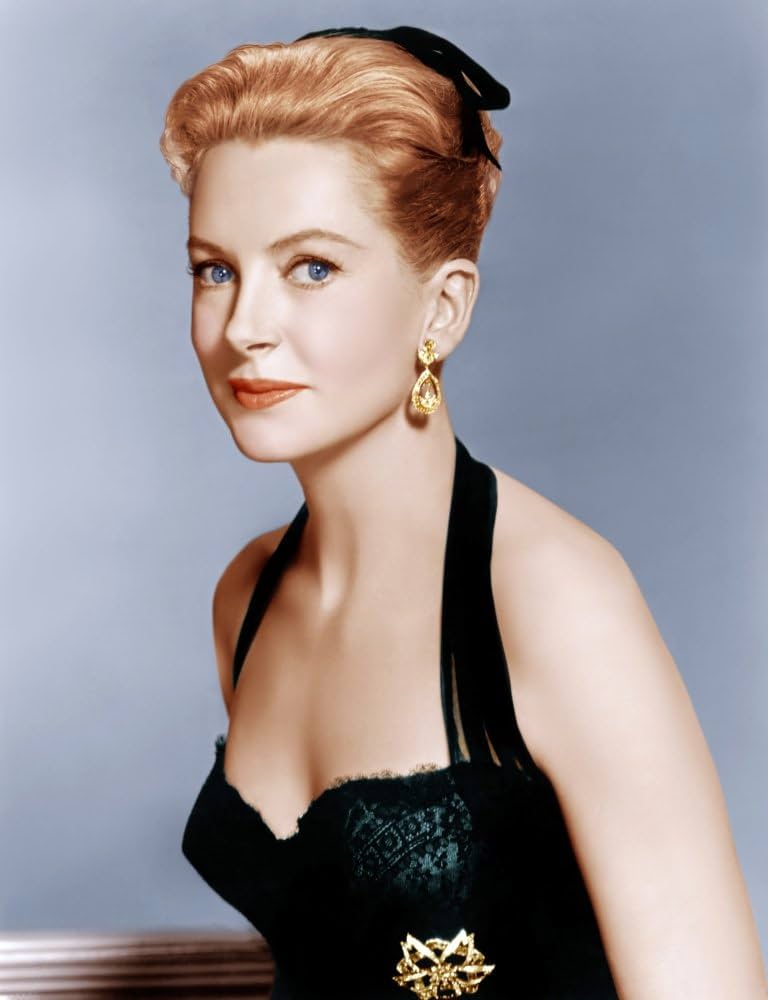Deborah Kerr was the kind of movie star who didn’t need to shout to be heard. Graceful yet commanding, tender yet unyielding, she embodied a kind of restrained power that defined an era of post-war cinema. Born on September 30, 1921, in Helensburgh, Scotland, Kerr became one of Britain’s most celebrated actresses — a performer whose poise and emotional precision made her a favorite of audiences, critics, and directors alike. But beneath that elegance was a quiet rebellion — a woman determined to prove that “ladylike” didn’t mean “limited.”
Kerr grew up in a middle-class Scottish family, the daughter of a civil engineer and a music teacher. As a young girl, she trained in ballet before turning to acting, studying at the Hicks-Smith School of Acting in Bristol. She made her stage debut in 1937 and quickly moved into film during Britain’s wartime cinema boom. Her early performances in British films such as
Major Barbara (1941) and The Life and Death of Colonel Blimp (1943) caught the attention of critics, who praised her intelligence and natural grace.
By the mid-1940s, Deborah Kerr had become the quintessential “English Rose” — refined, soft-spoken, and seemingly untouchable. Hollywood soon took notice. In 1947, she signed a contract with MGM and crossed the Atlantic, where she was immediately cast in films that reinforced her image as the model of British decorum. In
Edward, My Son (1949) opposite Spencer Tracy, she displayed the emotional depth that would define her career, earning her first Academy Award nomination for Best Actress.

But Kerr, ever restless beneath the polished surface, refused to be typecast. She longed to challenge the public’s perception of her as merely the dignified lady. That opportunity came in 1953 — in a single scene that would forever alter her career.
In From Here to Eternity, she played Karen Holmes, the bored and disillusioned wife of an army officer, who finds herself drawn to Burt Lancaster’s rugged sergeant. On a Hawaiian beach, in one of the most iconic moments in film history, their passionate kiss in the surf shocked audiences and shattered Kerr’s “prim” reputation. It was the kiss that changed everything — not just for her, but for Hollywood’s understanding of female desire on screen. Suddenly, Deborah Kerr wasn’t just a refined beauty — she was a woman of depth, daring, and fire.

The performance earned her another Oscar nomination and opened the door to a string of complex roles that balanced sensitivity and strength. In The King and I (1956), opposite Yul Brynner, she brought warmth and wit to Anna Leonowens, the English governess who challenges the powerful King of Siam. The film, rich with humor and humanity, became one of the most beloved musicals in cinema history. Kerr’s chemistry with Brynner — part intellectual sparring, part emotional longing — helped the film win five Academy Awards and cemented her place in movie legend.
A year later, she starred in Heaven Knows, Mr. Allison (1957), playing a nun stranded on a Pacific island with Robert Mitchum’s gruff Marine. The film was an unusual blend of spirituality and unspoken attraction, and Kerr’s performance earned her another Oscar nomination. She had become a master of portraying women bound by duty yet driven by unacknowledged passion — a theme that recurred throughout her career.

Kerr’s ability to inhabit both innocence and complexity made her an ideal actress for the morally gray stories of the 1950s and 60s. In An Affair to Remember (1957), she played opposite Cary Grant in what is still considered one of the greatest romantic films ever made — a movie so poignant it became a touchstone for generations of love stories that followed. Her mixture of gentleness and resolve made the film’s emotional climax unforgettable.
Her work in Separate Tables (1958) brought yet another Oscar nomination, as did her haunting performance in The Sundowners (1960), where she reunited with Robert Mitchum in a story of nomadic Australian sheep farmers. By this time, Deborah Kerr had accumulated six Academy Award nominations without a single win — a record that spoke not of neglect, but of the extraordinary consistency of her work.

Kerr’s talent wasn’t limited to romantic or dramatic roles. She also excelled in psychological and supernatural films. In The Innocents (1961), an adaptation of Henry James’s The Turn of the Screw
, she gave a chilling performance as a governess haunted by ghosts — or perhaps by her own mind. Her restrained terror and quiet unraveling made it one of the most powerful horror films of its time, proving once again that Kerr could dominate a screen without ever raising her voice.
Off-screen, Deborah Kerr was famously private. Colleagues described her as gracious, professional, and deeply intelligent — someone who approached her craft with humility and precision. Unlike many of her contemporaries, she avoided scandal and celebrity excess, preferring a life of quiet dignity. She was married twice, first to Royal Air Force pilot Anthony Bartley and later to writer Peter Viertel, with whom she lived in Switzerland during her later years.

In 1994, after decades of international acclaim, Deborah Kerr was finally honored with an Academy Honorary Award “for an artist of impeccable grace and beauty, a dedicated actress whose motion picture career has always stood for perfection, discipline, and elegance.” It was a fitting tribute to a woman who had spent her life bringing authenticity and integrity to the screen.
Kerr retired from acting in the 1980s but remained beloved by audiences who had grown up watching her films on television. When she passed away in 2007 at the age of 86, tributes poured in from around the world. Fellow actors and directors spoke of her quiet strength, her professionalism, and her ability to convey more with a glance than most could with a monologue.

Deborah Kerr’s career spanned over four decades and 50 films, but what remains most striking about her is the subtle rebellion beneath her grace. She was the “English Rose” who defied expectations — a woman who could be both saintly and sensual, fragile and fierce.
Her performances remain timeless not just because of her beauty, but because of her truth. Whether standing in a classroom in Siam, praying in a ruined convent, or kissing on a Hawaiian beach, Deborah Kerr showed the world that real power lies not in perfection — but in quiet courage.


